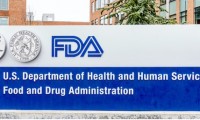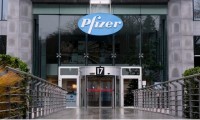-
Mirum’s plans to expand Livmarli’s market get hit as FDA pushes approval date
- Source: drugdu
- 157
- October 20, 2023
-
Ardelyx Nabs FDA Approval for First Phosphate Absorption Blocker in CKD
- Source: drugdu
- 110
- October 20, 2023
-
Merck’s Keytruda wins coveted FDA nod around surgery for early lung cancer—with a surprise
- Source: drugdu
- 173
- October 19, 2023
-
FDA establishes new advisory committee to provide expertise on digital health
- Source: drugdu
- 207
- October 18, 2023
-
Bristol Myers Squibb’s Opdivo approved by FDA for expanded melanoma use
- Source: drugdu
- 118
- October 18, 2023
-
FDA clears next-gen image-guided therapy tech from GE HealthCare
- Source: drugdu
- 172
- October 18, 2023
-
Pfizer announces FDA approval for Braftovi/Mektovi combination in lung cancer
- Source: drugdu
- 121
- October 17, 2023
-
FDA Forms New Digital Health Advisory Committee to Cover Growing Role of Tech
- Source: drugdu
- 214
- October 17, 2023
-
FDA Approves Pfizer’s Ulcerative Colitis Drug, $6.7B Arena Buy Pays Off
- Source: drugdu
- 108
- October 17, 2023
-
FDA Clears Pfizer’s Braftovi + Mektovi for Non-Small Cell Lung Cancer Treatment
- Source: drugdu
- 110
- October 17, 2023
your submission has already been received.
OK
Subscribe
Please enter a valid Email address!
Submit
The most relevant industry news & insight will be sent to you every two weeks.













